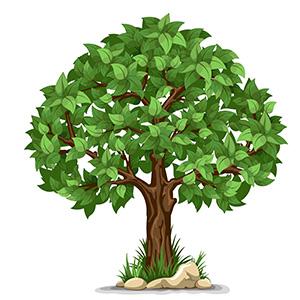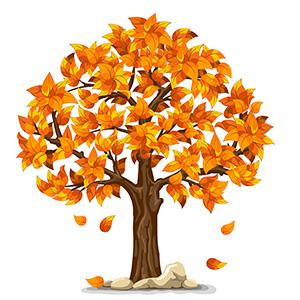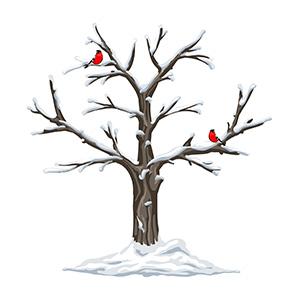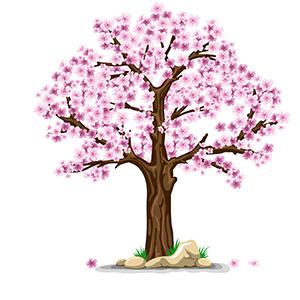It’s important to understand how much water your plants and trees require as some species are more prone to drought and dry conditions that others. Now is time to make sure your irrigation and watering system is working properly and using timers is a great way to keep on schedule and save water too.

Summer Seasonal Advice
Summer is when all the bugs are out in full force and it’s important to keep these under control. We only recommend the use of environmentally friendly, organic pesticides and encourage companion planting to help keep unwanted pests and bugs under control. We can provide planting consultant & garden advice services if you wish to learn more.
Summer time is also the time you’ll notice the never ending chore of pulling out weeds in your gardens and pathways. It’s important to make sure you have good weed matting in place and that your garden is mulched correctly. A good watering system that waters your plants and not your weeds is also helpful.
Privacy is great but it means constant trimming of your hedges as well. If not done correctly, you can end up with a bunch of branches instead of a nice leafy hedge which can take some time to recover. Make sure your hedges are trimmed correctly so you can enjoy them all summer long, visit our specialist pruning, thinning & trimming page for more information on how we can help.
Now is the time to make an appointment with us for Christmas. As you can understand, it’s our busiest time of the year and we always have limited time available so make sure you get in touch with us nice and early so we can fit you in just before it time to entertain the family and friends and make your property look great in time for Christmas.

Autumn Seasonal Advice
It that job we know we need to do but never actually get around to it until it starts causing problems. Don’t let the leaves block your drains and gutters as it can cause all sorts of moisture problems, rot timber and flood pathways and flooring. Now is the time to get that sorted before winter settles in.
Now is the time to think about pruning some varieties of ornamentals to maintain plant health and appearance before the winter sets in. We have a wealth of experience in pruning thinning & trimming a wide range of topiary and ornamentals so talk to us today to see how we can help.
Autumn is here and it’s time to fertilise your garden. Why now? Taking the time to fertilise in Autumn will strengthen your plant’s and lawn’s roots, giving them a strong base on which to thrive next spring. We recommend the use of organic fertilisers, composts and bio blends to ensure the best results for your garden.
Now is the time to think about planting your winter flowering bedding plants and winter vegetables. Use a good quality mulch to help keep the soil in the best condition over the harsh winter and prepare the soil for the following spring and summer.
March is an important month to feed established lawns. Fertilising at this time will help get them into top condition before the cold weather arrives. It’s also a great time to start a lawn from seed as you’ll always get best results by sowing when conditions are gentle, and moisture stays in the soil, which is why autumn’s the ideal month for looking after your lawn.

Winter Seasonal Advice
Heading into winter is when its time to think about putting your garden to bed. This means cutting back growth, pulling up dead annuals, pruning perennials and just generally protecting your plants and preparing the soil to make sure everything is ready to take advantage of the following spring growth period.
After a fruitful summer, we need to look at pruning your fruit trees for the following year. This helps reduce the size of the tree, allowing easier access the following year and helps prevent disease by allowing air through the tree and remove any dead or diseased branches to ensure a bumper crop next year.
Trees that shed their leaves annually are classified as deciduous. It’s best to regularly maintain these before they start getting out hand. Corrective pruning removes damaged wood and eliminates rubbing branches. It’s best to do this in the late winter or early spring, before bud break, as it’s a good time to prune many species because callus tissue forms rapidly.
It makes sense to look at removing any unwanted trees around this time of the year after you have put the garden to bed and performed any pruning of any other trees. Less foliage means there’s less green waste to remove and lets you start replanting for the upcoming spring and summer while the soil is still holding moisture.
If you are thinking about a large planting project you are wanting ready for the upcoming spring and summer, now is the time to think about the planting. You want to plant younger plants while the soil is still moist enough while they establish themselves and before the soil starts to dry out. Its also important to protect any new planting from frosts by selecting the right varieties and winter mulching in cold climates.

Spring Seasonal Advice
It’s important to correctly prepare the garden for new growth by removing weeds, aerating your soil, laying weed mat where required and using good quality composts, organic fertilisers and mulches. It’s also time to think about what you are planting & making sure its appropriate for the location and season.
The three essential elements that all plants need are nitrogen, phosphorus, and potassium or N-P-K, but its not as simple as you might think. The way plants use nutrients is quite complex and varies from plant to plant. Some need lots of one nutrient but little of another, while others need a balanced amount of each. Understanding which nutrient does what gives you a rough guide to selecting the right fertiliser for your plants and garden.
Time to check your irrigation system to make sure it is functioning well as it will be used quite a lot over the spring and summer and the last thing you need is to come back from holiday to find out your hose had a leak in it. Check to make sure nothing has come undone or blocked up over the winter.
A good idea to look at fertilising your lawn for a healthy lawn over summer. It’s standard practice is to apply a dose of lawn fertiliser in the spring, followed by one or two more during the growing season. A common mistake is to apply the spring fertiliser too early as the best time for that first application is in usually in late spring, just as the green grass is beginning to grow eagerly.
We know they’re are coming so we might as well prepare for them early. Start thinking about what you are going to need to control any insect pests and bugs that will start to multiply at this time of year. Mulch benefits plants by keeping the soil cool and moist and depriving weeds of light. Organic mulches, in particular, can actually host crickets and carabid beetles, which seek out and devour thousands of weed seeds.
